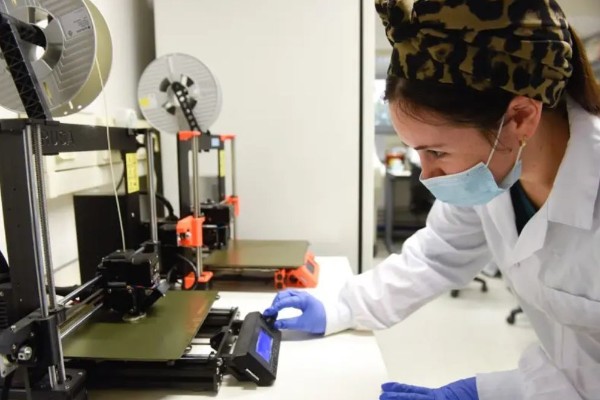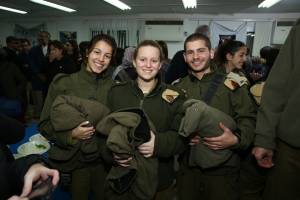Technion and Sheba Medical Center researchers fabricated a biodegradable ear from a patient’s own cells.
By Pesach Benson, United With Israel
Researchers at the Technion and Sheba Medical Center developed a functional and aesthetic innovation for people with congenitally deformed ears. The Israeli team predicts that this technology will also be applied to nasal reconstruction and other orthopaedic implants.
By using tissue engineering, 3D-printing techniques and the patient’s own cells, the Israeli team was able to fabricate a biodegradable ear that will benefit children suffering from microtia, a birth defect that occurs when the external ear fails to develop normally.
Microtia has varying degrees of severity. In its mildest form, a child may have one ear that is noticeably smaller but still functional. But in most cases, it leads to ear canals that are extremely narrow or closed, misshapen ears and even a totally absent ear. As a result, children with microtia deal with hearing loss, which impacts their speech development. They may also be more susceptible to ear infections.
Microtia develops during the first trimester of pregnancy and occurs in 0.1 to 0.3 percent of births. In 90 percent of the cases, the birth defect only affects one ear.
Since the “bones” of the outer ear are actually flexible cartilage, doctors often treat microtia by reconstructing the ear, using costal cartilage harvested from the patient’s chest. However, this method carries pain and discomfort for children, and risks further complications, so this procedure only takes place when a child is 10. Moreover, constructing an ear that is identical to the other ear requires a higher level of surgical skill.
The breakthrough was achieved through a collaborative project between Professor Shulamit Levenberg of the Faculty of Biomedical Engineering at the Technion and Dr. Shay Izhak Duvdevani, a senior physician in Otorhinolaryngology and Tissue Engineering at Sheba Medical Center.
The journal Biofabrication reported that the researchers applied new technologies for tissue engineering, developed in Prof. Levenberg’s lab under the leadership of Dr. Shira Landau, to fabricate a biodegradable auricle scaffold that formed stable, custom-made neocartilage implants.
The unique scaffold, which allows for the formation of an aesthetic and stable auricle, is 3D-printed and based on a CT scan. It is biodegradable and forms chondrocytes – the cells responsible for cartilage formation – and mesenchymal stem cells. The scaffold has pores of varying sizes, allowing for cell attachment to form stable cartilage.
The researchers said the procedure can be done on children as young as six, mitigating the defect’s impact on speech and psychology.
Prof. Levenberg predicted that “it will be possible to tailor our technology to other applications, such as nasal reconstruction and fabrication of various orthopedic implants.”
Bring Joy to Israeli Soldiers - Send Winter Care Packages!
We are honored to thank the young men and women of the IDF who risk their lives every day to defend the citizens of Israel.
Join us in sending winter care packages and personal notes of support to Israeli soldiers who are out in the cold all day.
Warm up a soldier's heart with essential winter wear including fleece jackets, hats, gloves and more. Keep an entire unit warm!
THE SOLDIERS REALLY APPRECIATE YOUR LOVE AND CONCERN!
Click Here to Send Your Gift and Personal Note to Israeli Soldiers

